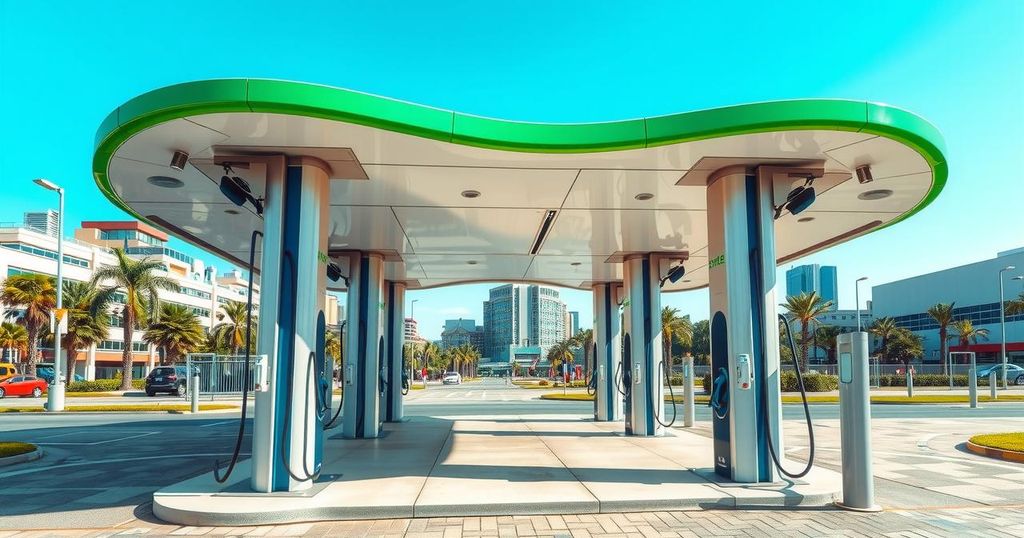Nigeria Launches Africa’s Largest Electric Vehicle Charging Station

Nigeria has opened Africa’s largest electric vehicle charging station in Abuja, promoting domestic production and reducing fossil fuel dependence. The initiative includes the launch of electric buses and taxis and is part of a broader government plan to transition to electric vehicles, aiming for 30 percent of vehicles produced to be electric and creating 200,000 jobs.
Nigeria has inaugurated Africa’s largest locally assembled electric vehicle charging station in Abuja. This initiative aims to foster domestic production of electric vehicles and diminish reliance on fossil fuels, as reported by DNE Africa, an affiliate of TV BRICS. The station’s opening highlighted the unveiling of electric buses and taxis produced in Nigeria, reflecting the government’s ambitions to reduce emissions and modernize the automotive industry.
John Uwan-Enoh, the Minister of State for Industry, Trade and Investment, expressed the country’s commitment to ensuring that 30 percent of all vehicles manufactured in Nigeria are electric. This initiative is part of the National Automotive Industry Development Plan, which aims to boost car production to one million units annually, enhance local production to 40 percent, and create approximately 200,000 job opportunities.
In transitioning to electric vehicles, the Nigerian government acknowledges the need for supplementary investments in renewable energy and the advancement of charging station infrastructure. Their vision is to accelerate the transformation of the automotive sector and foster sustainable transportation solutions across the country.
The inauguration of Africa’s largest electric vehicle charging station in Nigeria marks a significant step in promoting sustainable transportation and reducing reliance on fossil fuels. The government’s ambitious plans for the automotive sector aim to increase electric vehicle production and create job opportunities, underscoring the importance of infrastructure investment to support this transition. Overall, this initiative reflects Nigeria’s commitment to modernizing its automotive industry and contributing to global sustainability efforts.
Original Source: tvbrics.com








